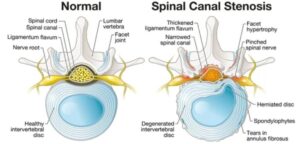When it comes to managing musculoskeletal issues and promoting overall well-being, individuals often seek the assistance of various healthcare professionals. Chiropractors, physiotherapists, and osteopaths are three such professionals who specialise in treating a range of musculoskeletal conditions. While they share certain similarities in their approach to care, there are distinct differences between these practitioners.
In this blog post, we will explore the contrasts between chiropractors, physiotherapists, and osteopaths, and delve into when it is appropriate to consult a chiropractor for your specific needs.
Understanding Chiropractors, Physiotherapists, and Osteopaths
Chiropractors
Chiropractors are healthcare professionals who focus on diagnosing and treating disorders of the musculoskeletal system, particularly those related to the spine. They employ a hands-on approach, often utilising spinal adjustments and manipulations to restore alignment and improve the function of the nervous system. Chiropractors emphasise the relationship between the spine and the overall health of the body, believing that misalignments or subluxations of the spine can interfere with the body’s natural healing abilities.

Physiotherapists
Physiotherapists, also known as physical therapists, are healthcare professionals who specialise in the assessment, diagnosis, and treatment of physical impairments and disabilities. They employ various techniques, including exercises, stretches, manual therapy, and electrotherapy, to enhance mobility, relieve pain, and promote optimal physical functioning. Physiotherapists work with individuals of all ages, addressing a wide range of conditions, such as sports injuries, post-operative rehabilitation, chronic pain, and neurological disorders.

Osteopaths
Osteopaths are healthcare practitioners who focus on a holistic approach to healthcare, considering the body as an interconnected system. They employ manual techniques, including soft tissue manipulation, joint mobilisation, and muscle energy techniques, to address musculoskeletal issues. Additionally, osteopaths may also provide dietary advice, lifestyle modifications, and exercise recommendations to promote overall health and well-being. Osteopaths believe in the body’s innate ability to heal itself and aim to support this process through their interventions.

When to Seek Chiropractic Care
Chiropractic care can be beneficial in several scenarios, including:
Back and Neck Pain
If you are experiencing chronic or acute back and neck pain, chiropractic care may provide relief. Chiropractors are skilled in identifying and treating spinal misalignments, which can alleviate pain and improve overall mobility.
Headaches
Tension headaches and migraines are often linked to muscular tension and misalignments in the neck and upper back. Chiropractic adjustments and targeted therapies can help reduce the frequency and intensity of these headaches.
Joint Pain and Dysfunction
Chiropractors can address joint-related issues, such as shoulder impingement, hip pain, and knee injuries, through manipulative techniques and rehabilitative exercises. They aim to restore joint function and reduce pain by addressing the underlying mechanical imbalances.
Sports Injuries
Chiropractors frequently work with athletes to manage and rehabilitate sports-related injuries. They employ techniques like joint mobilisations, soft tissue therapies, and exercise prescription to help athletes recover, enhance performance, and prevent future injuries.
Postural Issues
If you have poor posture or spend long hours in sedentary positions, chiropractic care can assist in correcting alignment issues and mitigating the associated discomfort. Chiropractors can provide advice on ergonomics and prescribe exercises to improve posture.
While chiropractors, physiotherapists, and osteopaths all play vital roles in managing musculoskeletal conditions, it is essential to understand their distinct areas of expertise. Chiropractors primarily focus on spinal health, aiming to restore alignment and promote nervous system function. When considering whether to see a chiropractor, assess your specific condition, symptoms, and treatment goals. If you are experiencing back and neck pain, headaches, joint issues, sports injuries, or postural problems, chiropractic care may be a suitable option to explore.
Contact us today to book an appointment to begin your journey towards better health.





